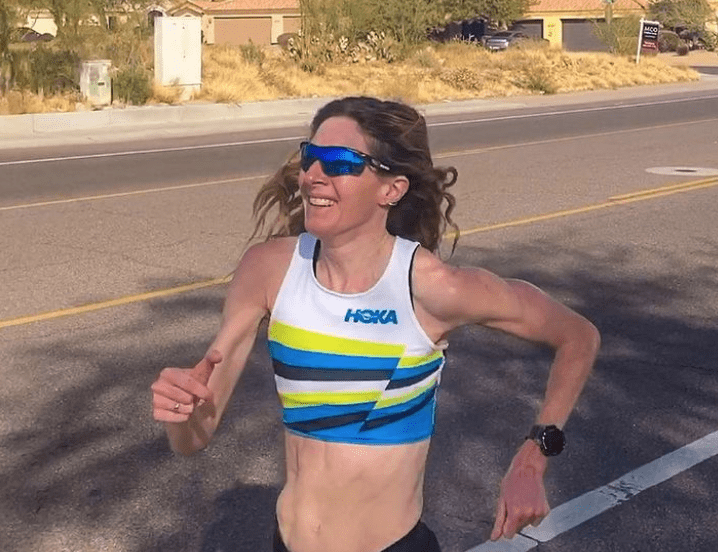What it will take for Walmsley and Herron to break 100K world records
Many top ultrarunners will be at the Hoka Project Carbon X 2 event, but beating (or even coming close to) the 100K world records will be far from easy
 Photo by:
Instagram/runcamille
Photo by:
Instagram/runcamille
A stacked lineup of ultrarunners is set for the upcoming Project Carbon X 2, an invite-only ultramarathon in Phoenix, Ariz., organized by Hoka One One. The run is similar to Nike’s Breaking2 project from 2017, although instead of shooting for a sub-two-hour marathon, all athletes present will be looking to break the 100K world records. American ultrarunning stars Jim Walmsley and Camille Herron are among the big names set to run at the event, which will take place on January 23, and while they are two of the best ultrarunners in the world right now, they will have their work cut out for them if they want to get close to the current world records.
https://www.instagram.com/p/CJgoUZ0Hdun/?utm_source=ig_web_copy_link
What the women have to run
The time to beat for the women is 6:33:11. This world record belongs to Japan’s Tomoe Abe, who set this mark over 20 years ago in 2000. Seven women are on the Project Carbon X 2 start list, but Herron is the main threat to challenge Abe’s record. (Canadian 50-mile and six-hour record holder Catrin Jones, a Hoka athlete, had hoped to toe the line in Arizona and fight for the 100K record as well, but she decided to pull out of the race due to the pandemic.)
RELATED: Camille Herron, Hayden Hawks run to wins at JFK 50-miler
Herron owns four ultrarunning world records (50 miles, 100 miles, 12 hours and 24 hours), so she is the obvious favourite to run 6:33 over 100K. Her 50-mile (80K) world record is 5:38:41, a blazing 4:13 per kilometre. At Project Carbon X 2, she’ll have to run 20K farther but shave more than 15 seconds off her per-kilometre pace to even come close to Abe’s record, which works out to 3:56 pace. Beating Abe’s time will take a lot from Herron, but as she has proven in so many races, she can never be counted out.
https://www.instagram.com/p/CJ843F3FjLQ/?utm_source=ig_web_copy_link
The men’s time to beat
In the men’s event, Walmsley and his competitors (there are 17 men in total) will be chasing the 100K record of 6:09:14 that was set by Nao Kazami, another Japanese runner, in 2018. Like the result from Kazami’s compatriot Abe, this record is going to be incredibly tough to beat. Walmsley has already given it a shot, as he was one of the athletes who raced at Hoka’s original Project Carbon X event in 2019. While he managed to break the American 50-mile record that day with a time of 4:50:08, Walmsley hit the wall hard shortly after recording his 80K split, and he finished in 7:05:24, almost a full hour off Kazami’s mark.
RELATED: Camille Herron runs 100 miles in less than 13 hours, breaks world record
To beat the record, Walmsley and the other men (most notably Hayden Hawks, winner of the 2020 JFK 50) will have to run about 3:42 per kilometre for the 100K race, and that will be cutting it extremely close. To beat the record with a buffer, they’ll need to run even faster. For context, that pace works out to an 18:28 5K (which the men will have to run 20 times in a row) and a 2:35 marathon. Walmsley’s 50-mile record was run at 3:36 pace, but it’s a tall order for him to maintain that speed for a full 100K.


